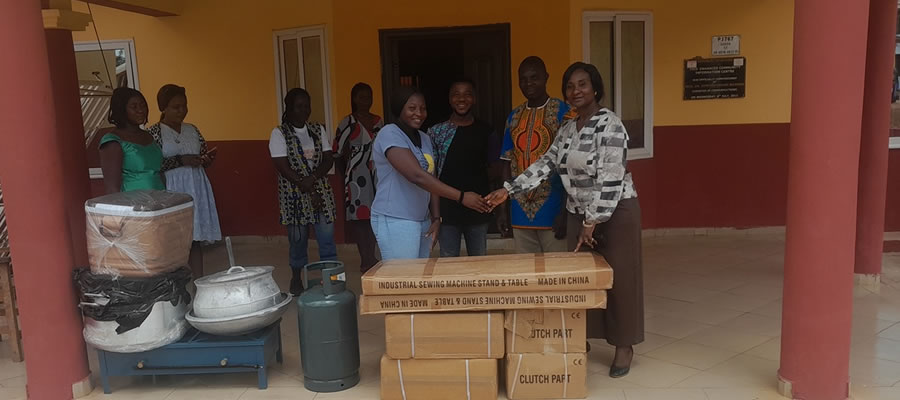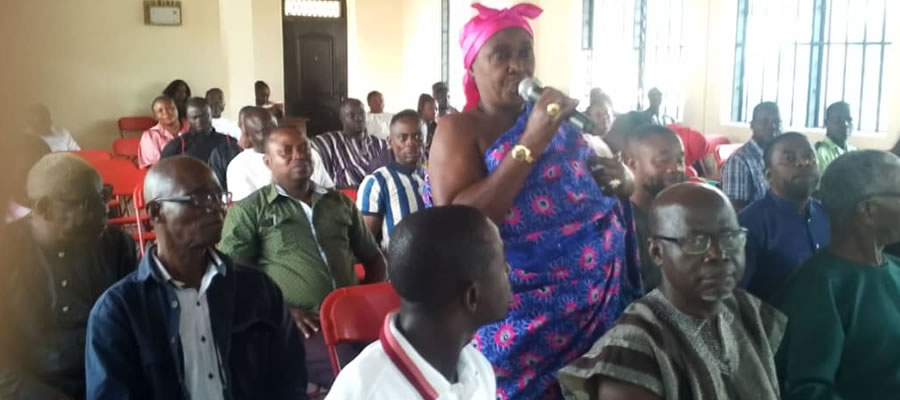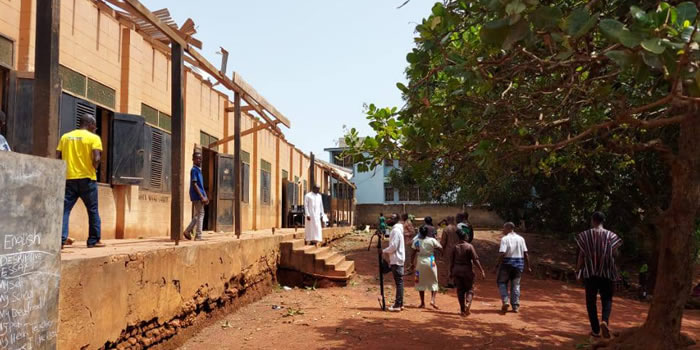

Administration
Assembly and it ’s Mission
The Municipal Assembly, the highest political and administrative body in the Assembly and therefore exercises deliberative legislative and executive functions, was established by legislative Instrument (L.1) 1408 in 1998, and it has a mission and responsibility to improve the quality of life of the people through sustainable development. To achieve this mission, the Assembly has set itself the following objectives:
To facilitate the effective functioning of Local government administration in the Assembly.
To ensure efficiency and effectiveness in the use of recourses of the Assembly and decentralized departments in the Assembly.
To monitor. Co-ordinate and harmonise the implementation of development plan and activities in the Assembly.
To facilitate the provision of basic social and economic infrastructure and services in the Assembly.
To facilitate community based and private sector development in the Municipality.
Organisational Structure of the Assembly
The Assembly is made up of a Municipal Chief Executive,79 Assembly members of whom 54 or two-thirds are elected by universal adult suffrage and 25 or one-third are appointed by the President in consultation with Chiefs and interest groups in the Assembly The members of Parliament in the Assembly are ex-officio members. It is chaired by a Presiding Member elected from among their ranks.
The Assembly performs its functions through the Executive Committee and a network of sub-committees. The Executive Committee exercises executive and co-ordinating functions of the Assembly while the 5 sub-committees collate and deliberate on issues relevant to their functional areas. These sub-committees are:
• Development planning
• Social Services
• Works
• Finance and Administration
• Justice and Security
As already mentioned, the Assembly is the highest governing body and exercises its executive and supervisory functions through the Executive Committee which is chaired by the Municipal Chief Executive.
For administrative effectiveness, the Municipal Chief Executive (MCE) is supported by a secretariat or central administration referred to as the office of the Assembly. The Assembly is headed by a Municipal Co-ordinating Director (MCD) who reports to the Municipal Chief Executive and is in charge of the day to day administration of the Assembly.
The Municipal Co-ordinating Director is also in charge of all Heads of Decentralised Departments of the Assembly.
The Central Administration of the office of the Municipal Assembly is broadly made up of two (2) departments:-
1 General Administration and Finance
2 Planning and Budgeting Co-ordinating Unit
The Decentralised Departments in the Municipality are:-
1. Education, Youth and Sports
2. Social Welfare and Community Development
3. Works
4. Physical Planning
5. Finance
6. Natural Resource Conservation
7. Trade and Industry
8. Disaster Prevention
9. Health
10. Agriculture
11. Specialised Units of the Central Administration
a. Birth and Death Registry
b. Information Service
c. Statistical Service
There is the Local Government Inspectorate, which audits the financial transactions of the Assembly and reports to the Municipal Co-ordinating Director.
Civil Service Performance Improvement Programme (CSPIP)
The rejuvenation of Local Government Administration based on the policy of decentralization has also coincided with the reforms of the entire public administration system in Ghana in general and the Civil Service in particular.
To consolidate the gains of these reforms, the Civil Service launched the Civil Service Performance Improvement Programme (CSPIP), aimed at developing and transforming the Civil Service into a higher level of efficiency, productivity and good governance. The programme stipulates the development and implementation of Performance Improvement Plan (P.I.P) which vigorously sets the tone for sustained administrative efficiency and good governance.
A constituent of the Performance Improvement Plan is the development of an Organizational Manual to clarify and strengthen working relationship and performance of functions/duties of staff as well as projecting the essence and roles of public institutions.
In furtherance of the programme, the Assembly applied for computers, sanitary tools etc. from the CSPIP Secretariat and have received the underlisted items to support sanitation programmes in the Municipality. The items are:
Wheel barrows 100
Shovels 200
Digging Forks 200
Dustbins 100
Power tillers 2
Date Created : 11/24/2017 7:27:15 AM












 facebook
facebook
 X
X
 Youtube
Youtube
 instagram
instagram
 +233 593 831 280
+233 593 831 280 0800 430 430
0800 430 430 GPS: GE-231-4383
GPS: GE-231-4383 info@ghanadistricts.com
info@ghanadistricts.com Box GP1044, Accra, Ghana
Box GP1044, Accra, Ghana